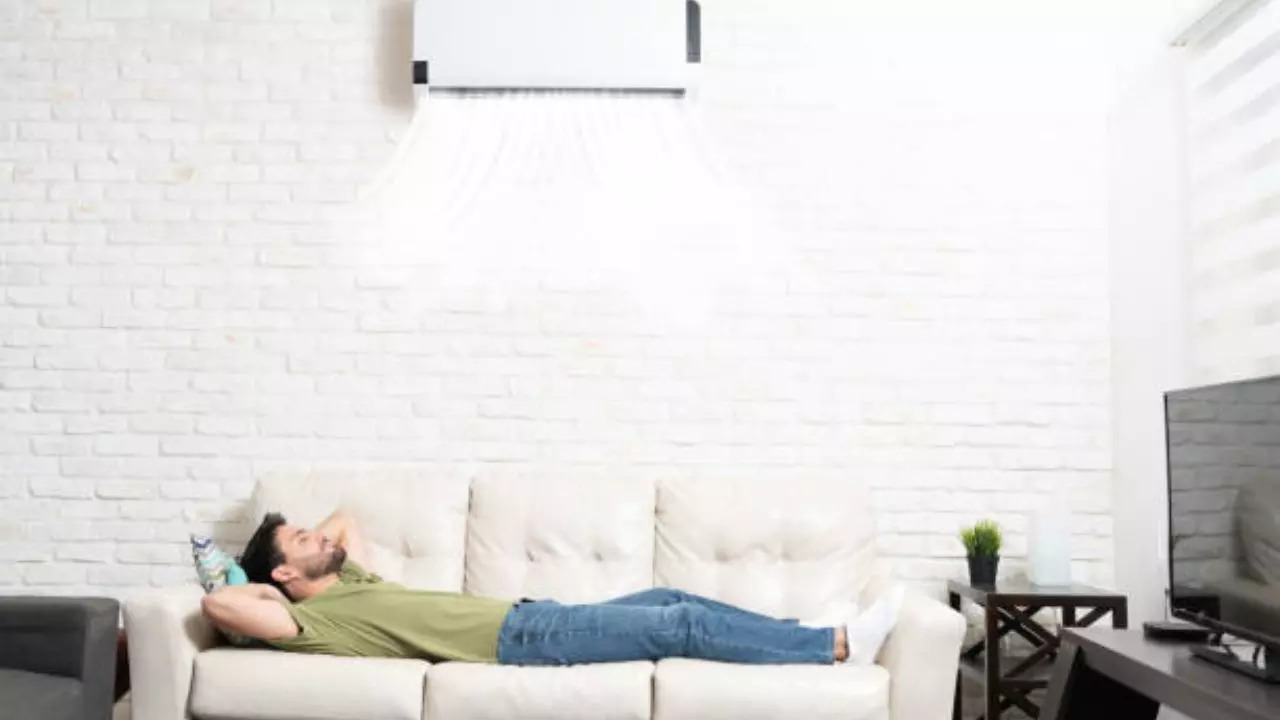Sleeping with AC on at night? Know what effect it has on your health
Even though sleeping with the air conditioning on can help you escape the heat, you should be aware of the potential health risks. From affecting your sleep quality to affecting your respiratory health, sleeping with the AC on can have a significant impact on your health. However, you can minimize any adverse effects by taking necessary precautions. Read on to know tips to minimize the risk.

How sleeping with the AC on at night affects your health (Image courtesy: iStock)
Many of us rely on air conditioning to sleep comfortably at night when the humidity rises during the monsoon. Even though the cool breeze can be a pleasant change in your life, you should think about the potential health risks of sleeping with the air conditioner on. Prolonged exposure to the cold, dry air of an AC unit can lead to a variety of health problems, including respiratory problems, dry skin, and disturbed sleep patterns.
We got in touch with Dr Shibal Bhartiya, Program Director, Community Outreach and General Wellness, Marengo Asia Hospitals Gurugram, who explained how sleeping with the AC on at night can affect your health.
1. Quality of sleep
The temperature of your sleeping environment greatly affects the quality of your sleep. If the room is too cold, it can make you uncomfortable and prevent you from falling asleep. If you tend to wake up feeling cold or need more blankets, consider adjusting the temperature setting or using a fan in addition to the AC to create a more comfortable environment.
2. Respiratory Health
The biggest problem associated with sleeping with air conditioning on is the effect it has on your respiratory system. Air conditioners cool and dehumidify the air, which can dry out the throat and nasal passages. This can aggravate asthma and allergy symptoms, especially if the AC unit is not properly maintained. Dust and mold buildup in the air filter can spread throughout the room, potentially causing respiratory problems. Regular maintenance and timely replacement of air filters are essential to minimize these risks.
3. Skin conditions
Prolonged exposure to air conditioning can also affect your skin. The dry air produced by AC systems can cause skin dryness and irritation and worsen skin problems such as eczema. To combat this, consider using a humidifier to maintain an optimal level of humidity in your bedroom. Applying a moisturizing lotion before bed can help keep your skin hydrated.
4. Mental health
Your sleeping environment plays an important role in your health. mental health Also. A comfortable and well-regulated sleep environment can improve mood and cognitive performance. However, discomfort from excessively cold or dry air can cause insomnia and negatively impact mental health. Maintaining good air quality and a pleasant room temperature can support better mental and overall health.
5. Hydration
Air conditioning can also affect your hydration levels by drying out the air. When the body loses too much moisture due to dry air, dehydration symptoms such as headaches, dry mouth and lethargy can occur. To combat this, make sure your room has a water-based humidifier to add moisture to the air and drink plenty of water throughout the day to stay hydrated.
6. Effects on blood flow
Sleeping in a room that is too cold can impede blood circulation. Cold temperatures can constrict blood vessels, causing discomfort or numbness, especially in individuals with conditions such as Raynaud’s disease. To avoid these problems, keep your room at a comfortable temperature and use proper bedding or layers to stay warm without overusing the air conditioner.
How to use AC safely?
Dr. Shible has some advice on how to use your air conditioner efficiently to balance comfort and health:
– Maintain your AC unit: To ensure optimal air quality and effective operation, clean or replace filters regularly.
– Use a humidifier: This can help reduce the dry air produced by the air conditioner.
– Adjust temperature settings: Set your AC to a comfortable temperature, avoid extremely hot or extremely cold temperatures.
– Stay hydrated: To combat the drying effects of air conditioning, drink plenty of water.
– Monitor your health: Be alert to any discomfort or health problems related to air conditioning, and make necessary adjustments.
Get the latest news on Times Now as well as breaking news and top headlines from across health and the world.
mental health


